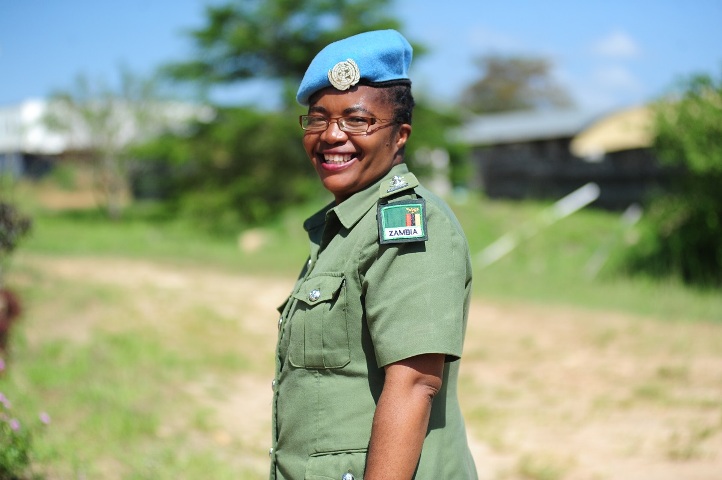At dawn in Wau, Northern Bahr El Ghazal, 17 trucks line the otherwise deserted streets near the United Nations Mission in South Sudan’s (UNMISS) field office. Their mission is to transport essential fuel across perilous roads to the UN Peacekeeping mission's base in Bentiu, Unity state.
These drivers are not alone on this dangerous journey. They are escorted by Blue Helmets from Mongolia, providing crucial force protection to ensure the safe delivery of this vital fuel, which is essential for sustaining UNMISS's operations aimed at protecting civilians and fostering peace in a region plagued by climate change and intercommunal conflict.
The escorting peacekeepers play a critical role in securing these convoys, especially given recent attacks on drivers and growing regional instability. Their presence helps maintain open and safe supply routes, enabling the delivery of food, medical supplies, and other critical aid to communities severely affected by conflict and environmental disasters.
Lado Abdul Rashid, a veteran truck driver, highlights the importance of the peacekeepers’ presence. "The cargo we carry is precious and the roads are insecure. We have waited two weeks for our turn to travel under UNMISS escort after some of our fellow truckers have been ambushed or lost their lives," he says.
The roads in South Sudan, particularly during the lengthy rainy season, become nearly impassable. Pre-positioning supplies ahead of the rains is crucial. The convoy travels for 12 hours a day, utilizing daylight for safety and stopping at UNMISS field offices at night to reduce risks.
Without peacekeepers, the journey would be significantly more hazardous and time-consuming. "If we travel without UNMISS peacekeepers, it takes around six days to reach Bentiu due to frequent stops for safety. With their escort, we can complete the journey in just three days," explains Fuad Abdul Seif, another experienced driver, during a checkpoint stop in Warrap state.
Lieutenant Colonel Ugganbaatar Khurelbat, leading the mission, underscores the importance of their role. "Our primary goal is to protect civilians. Ensuring the safety of these drivers is crucial for the uninterrupted delivery of essential supplies and for safeguarding those who risk their lives to deliver them," he states.
As the convoy arrives in Bentiu and unloads the fuel that will support UNMISS operations for months, the mission is far from over. Ghanaian peacekeepers are prepared to escort the 17 drivers back to Wau, where another convoy will soon embark on its journey under the protection of the Blue Helmets.
The successful execution of these missions involves extensive logistical coordination among various UNMISS field offices, local and national government partners, national security forces, humanitarian organizations, and the private sector.











